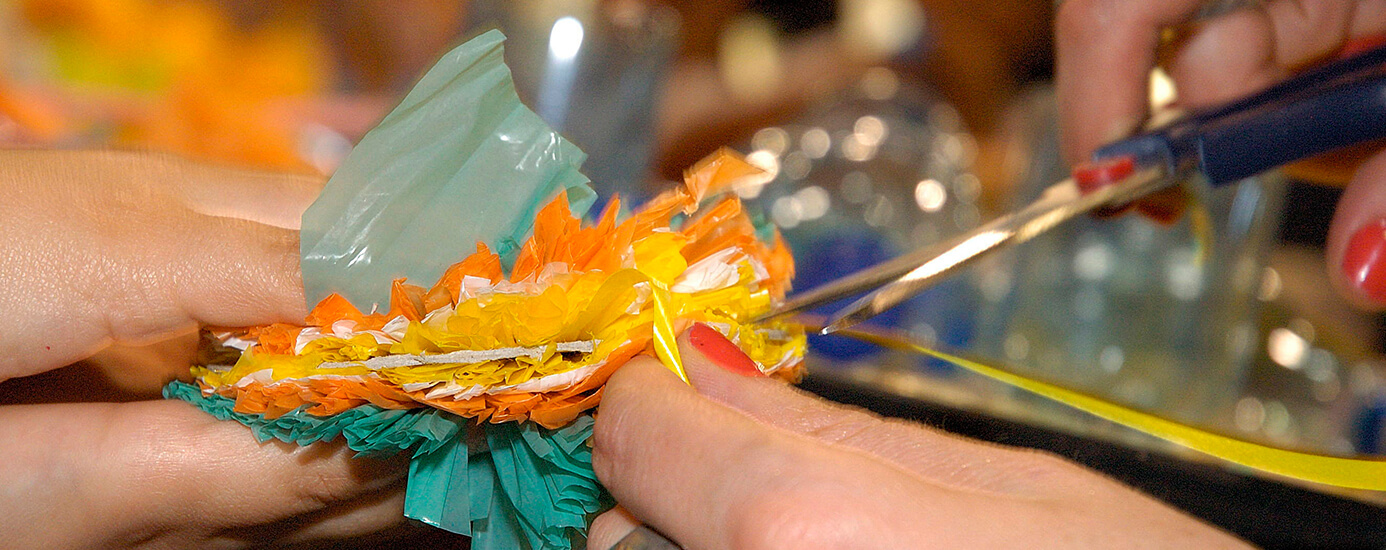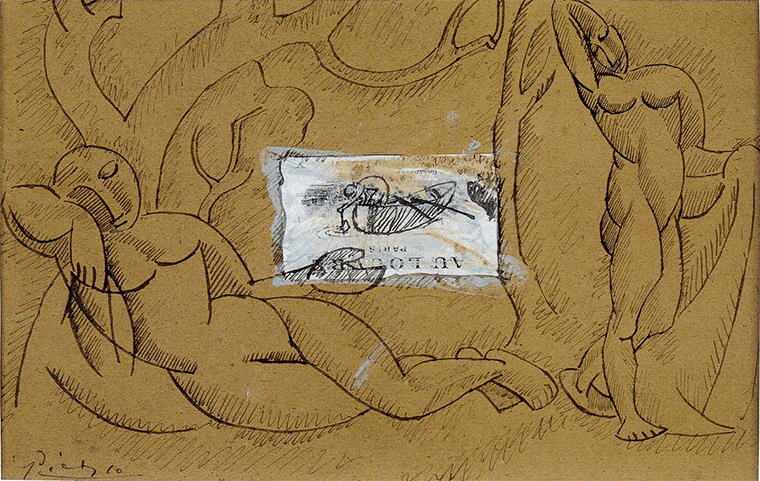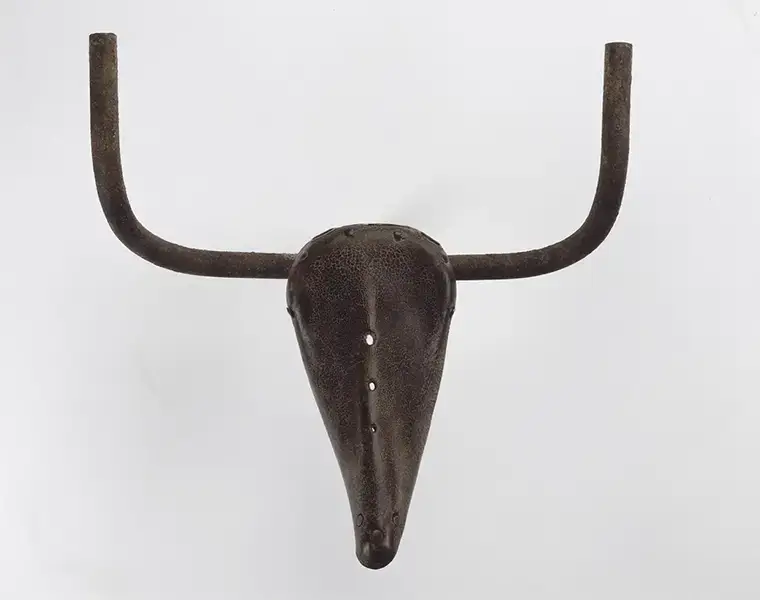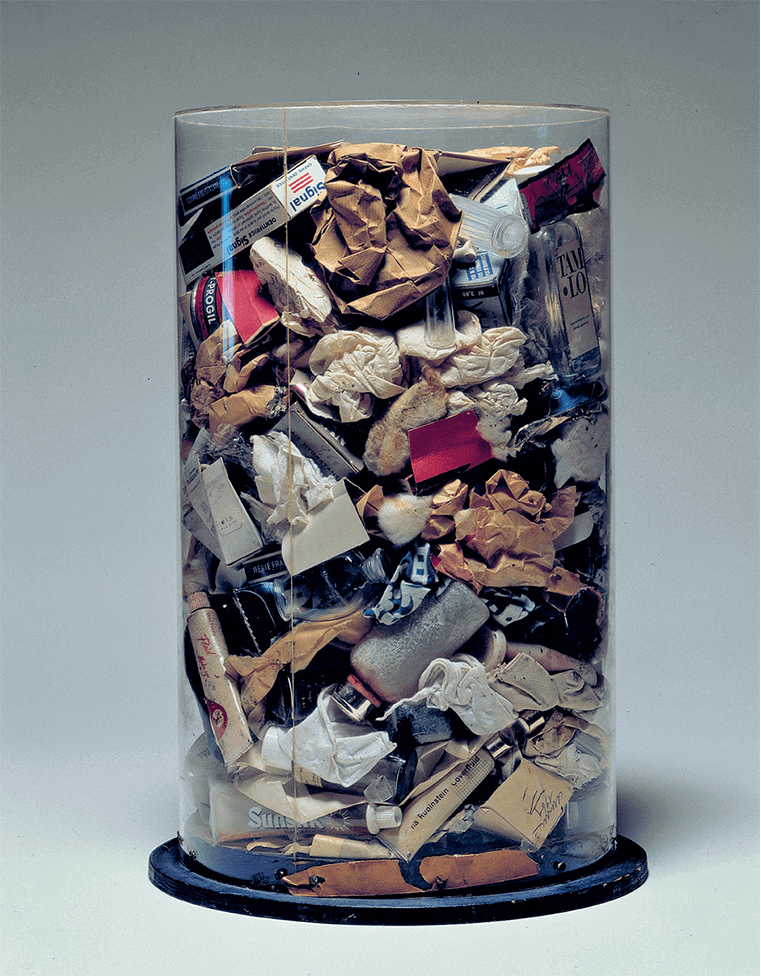The art of recycling
- 27/04/2017
In a society where garbage continues to grow, causing air pollution, soil but also water, recycling has become the cornerstone of environmental protection. Art has not escaped the trend. When our waste becomes their raw material.
THE RECYCL'ART
At the very beginning of the 20th century, Art, whose path traced since its inception has always been sinuous, tends to move further and further away from its beaten track. Far from simple brushes, easels and compliant workshops, far from academicism quite simply, the appearance of new techniques, new means and new so-called "non-noble" materials are redistributing the cards. The use of these new materials, other than traditional materials, is today recognized as a movement in its own right: the Art of recycling, Recycl'Art or upcycling. Unlike their predecessors, the artists of this Art do not seek to use the recovered object for what it represents or for its essence and its primary function, but as simple material. The aim is to demonstrate that waste, the obsolete components of our bins, can enter a process of creation as a material and become something else. The desire of recycled art is not to enhance the object but rather to use it as a unique component.
RECYCLING IN ART WITH PICASSO
Pablo Picasso was one of the first to use "coarse" materials in his works. In Le Rêve of 1908, he draws without hesitation on a cardboard support to which a label is stuck. In 1912, he recovered a vulgar rope and used it to frame his oilcloth Still Life with the Cane Chair. The simple fact of using an object in his work was at the time a totally innovative and revolutionary concept. Much later, in 1942, he paid tribute to bullfighting with his famous sculpture Head of a bull, in which he reused a handlebar and a bicycle saddle.


In the 1960s, Arman, a famous sculptor from Nice and Franco-American, stood out for his accumulations of recycled objects in his works of art. He collects, sorts and re-uses found objects by assembling them. He works in particular with garbage, which he collects and then places in Plexiglas boxes. A member of the New Realists movement, his works denounce overconsumption with his paintings made of rubbish. Clocks, old suitcases, milk jugs or old hammers, everything goes. Supported and assisted by Marcel Duchamp and his readymades, Arman is one of the precursors of this recycled art.

Daniel Spoerri is also a prominent member of the New Realists, and, like Arman, he engages in the poetic recycling of the real. One day, he invites his friends, relatives and colleagues for lunch. Once the meal is over, he fixes the moment by sticking the leftovers as they are. Plates, glasses, ashtrays, food, then become eternal witnesses of a present that has already passed. He then overturns the table and presents it on the wall like a hanging painting. This work, like those of Arte Povera, an Italian artistic movement born in the 1960s which has no poor but the raw material used, is a study of our human society through its waste. They are traces of a past time, a kind of archaeological trace, a reflection on the sustainability of our societies and on what will remain.
DAN CASADO, THE ARTIST BUILDING A NEW WORLD
Born in Mar Del Plata, Argentina, Dan Casado is an artist who now resides and works in El Hierro in the Canaries. "Seven years ago I established my home-studio on the volcanic island of El Hierro, one of the seven Canary Islands, selected by UNESCO as a Biosphere Reserve. Here I started to make works of art with local garbage and found objects that I recycle into a work of art: collages on paper, residues of paints, dyes and other mediums found at the chance of my excavations ... I see recycling like a compromise and a way of life, giving a second life to old materials piled up in dumps, transforming discarded objects into new attractive objects, humble works of art that are neither more nor less imbued with mystery ... For me, art is above all a tool to rebuild the world. Art is my key! "








.png)





